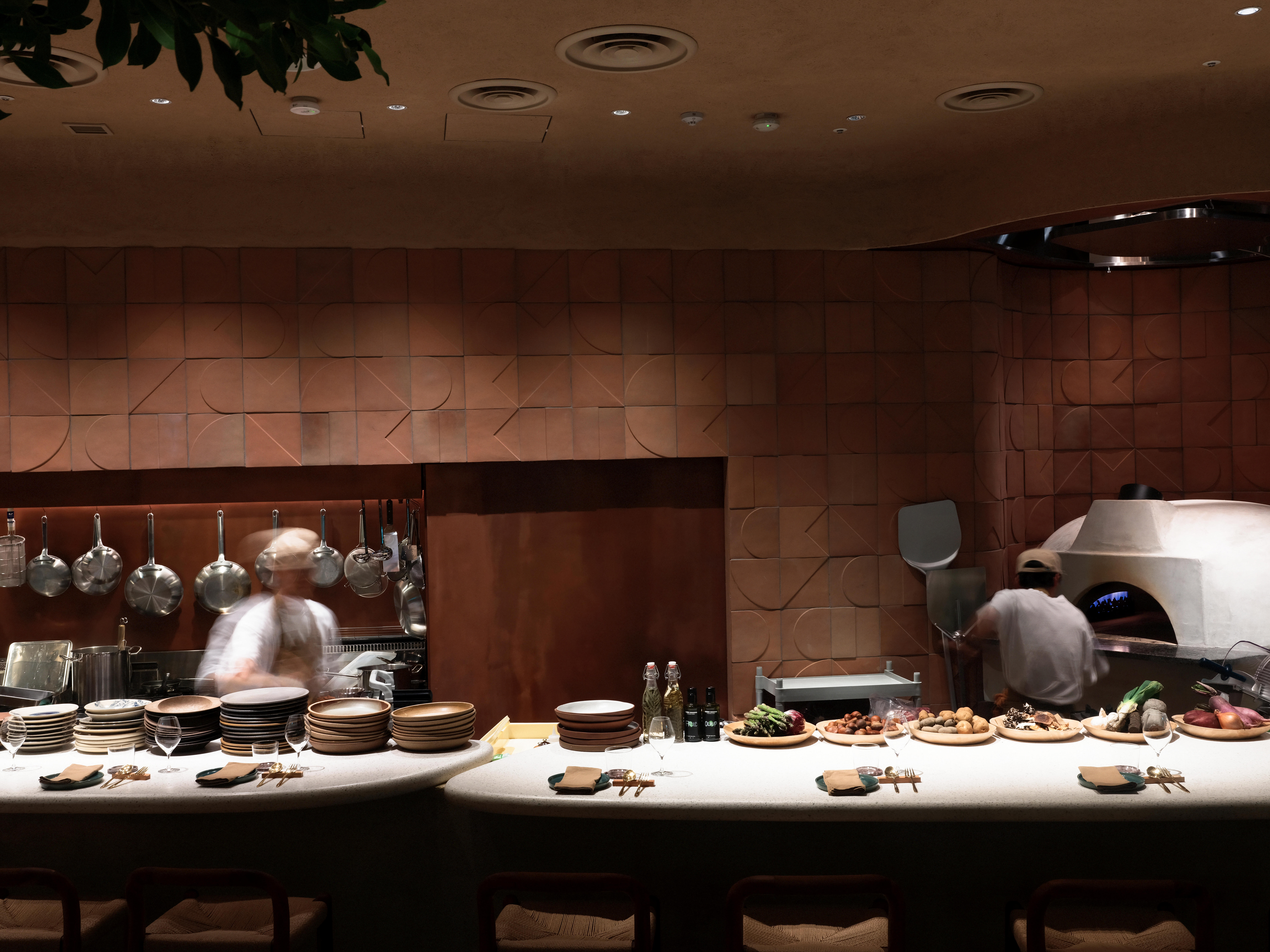Pizza 4P’s Tokyo

Reservation Line
- Mon - Sun
- 11:00〜22:00(L.O 21:00 / Close from 14:00-17:00)
- その他
- 年末年始、GW、夏季休暇、SWなど、不定休となっております。
Designer
The store design was done by STUDIO DIG., which has worked on stores such as SANU and SOIL Setoda.He was also in charge of the design of three stores at 4P's in Vietnam. They are particular about materials in order to convey emotional value, and their motto is to see, touch, and feel things directly. By traveling to Nagano and Gifu together, and with the help of producers we connected with while exploring materials, we created an "Earth to People -Oneness" space where compassion for the earth and nature is born.
Gallery
The lighting inside the store is from Fukuoka's ANON lighting, which uses renewable natural materials, mainly Japanese paper. In cooperation with the seaweed farming company SEA VEGETABLE, we created lighting using washi paper mixed with seaweed that cannot be sold as it is substandard.
The wall tiles are from Vietnam's "M&A Art Tiles," which is a modern take on traditional encaustic tiles.The English letters "PEACE" are placed inside the tiles. Please try to find the hidden “PEACE”.
When you enter the store, the cheese factory will appear directly in front of you. Enjoy fresh cheese made by artisans every day. Through trial and error, we have located the workshop in the center so that everyone can receive it quickly.
Naturally dyed napkins from India, plates from Los Angeles and Cambodia, and coasters made from recycled plastic waste from Vietnam. Cutlery made from Cambodian bullets, tables made from washi paper, and other items harmonize thoughts from around the world on the table.
The table tops were made by Wataru Hatano, a Japanese paper craftsman who creates space and art using handmade Japanese paper and continues a centuries-old tradition. The back cushions of the sofa are dyed using food waste such as vegetable peels and green and black tea.

